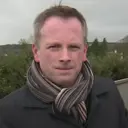No new coronavirus deaths in Scotlandpublished at 12:58 BST 22 June 2020
 Image source, PA Media
Image source, PA MediaThere have been no new coronavirus deaths registered in Scotland over the past 24 hours, First Minister Nicola Sturgeon has said.
A total of 2,472 patients have died in Scotland after testing positive for Covid-19, which is no change on Sunday's figure.
The death total previously remained unchanged on four other days - 21 June, 15 June, 8 June and 7 June.
The first minister said 18,170 people have tested positive for the virus in Scotland, up by 14 from 18,156 the day before.
There are 867 people in hospital with confirmed or suspected Covid-19, an increase of 66.
Of these patients, 15 were in intensive care, down by one.


















